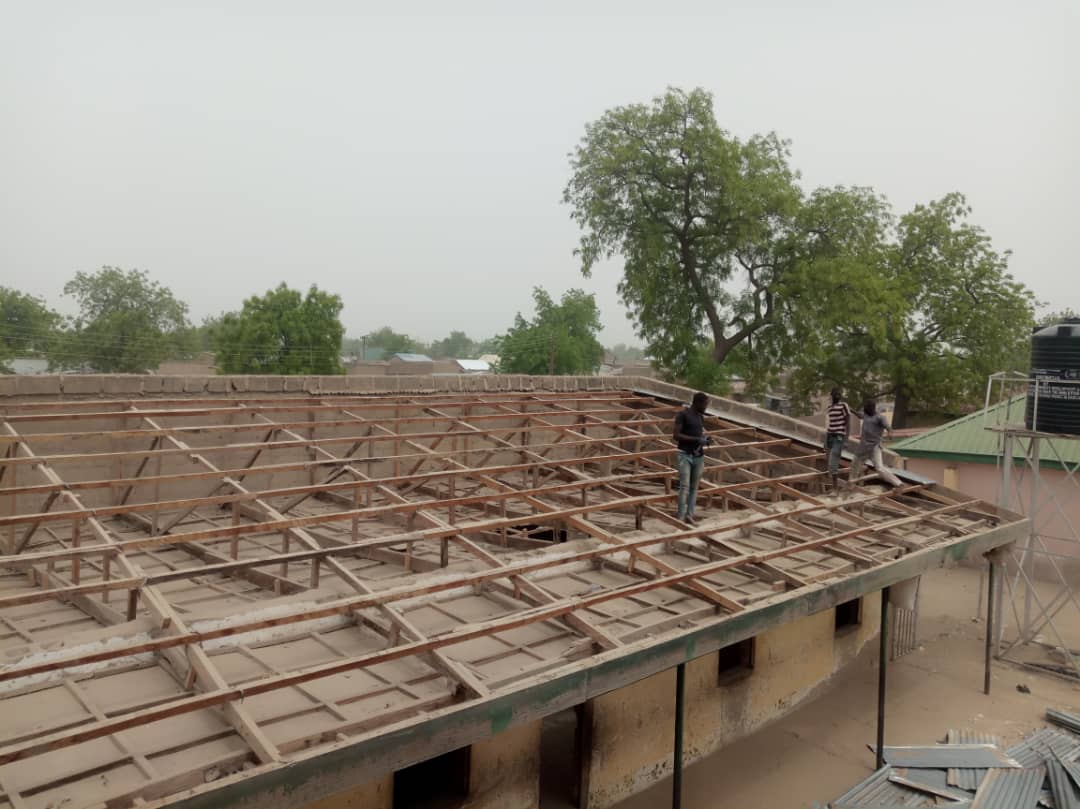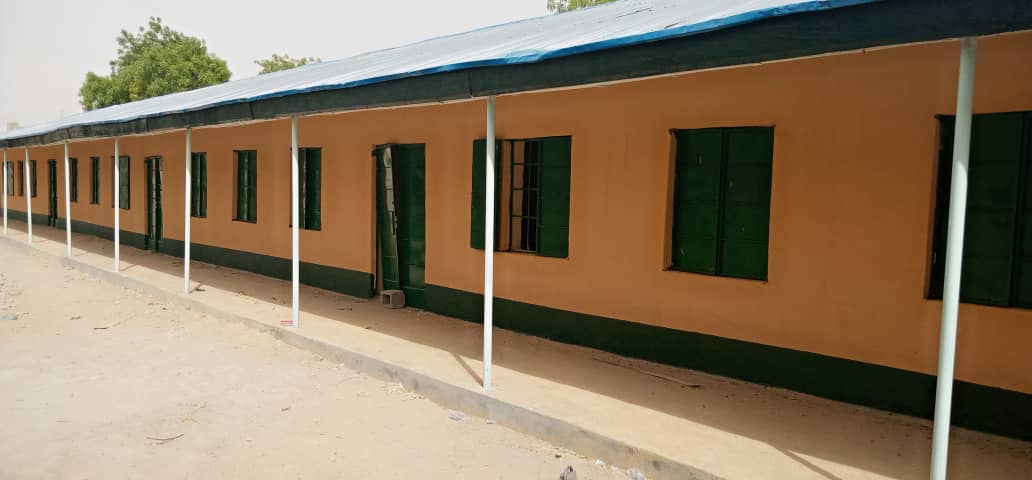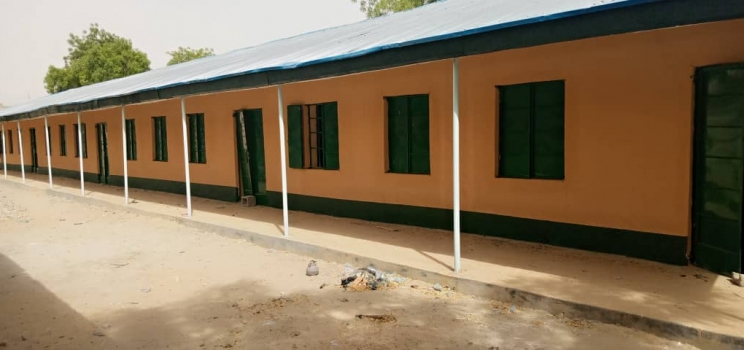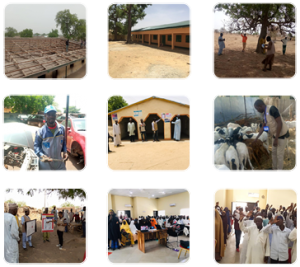School children in Bade communities are set to benefit from newly renovated classrooms and other amenities as part of the United Nations World Food Programme’s 2020 Livelihood project being implemented by the Centre for Community Development and Research Network in Bade LGA, Yobe-Northeast Nigeria.
For over ten years, Nigeria has experienced large scale disruption and mayhem in its northeast region due to conflict between the government and non-state armed groups. Owing to the prolonged conflict, infrastructure has suffered seriously from damage and neglect, substantially affecting the living conditions of the resettled people, with many vital education facilities destroyed or damaged, and overstretched due to the high influx of displaced persons.
Under the WFP livelihood intervention in Bade LGA, the Project for rehabilitation and construction of Community Infrastructure and Facilities has been framed within the overall objective of contributing to the sustainable rehabilitation and reconstruction of the area to overcome the on-going hardships of the returned and resettled Internally Displaced Persons (IDPs) due to lack of basic services.

Skilled beneficiaries of WFP livelihood intervention working on the roof top of one of the classrooms undergoing renovation in Bade LGA, Yobe
Between January and May 2020, with support from WFP, CCDRN has renovated 11 classrooms across targeted communities. Two blocks of seven classrooms, a library and a store at Umar Sulaiman Primary and Secondary School were renovated. One block of four classrooms at Government Day Secondary School in Bade LGA was also renovated with work still ongoing to construct and renovate toilet facilities in both schools.

Rear view of one of the completely renovated block of classroom under WFP livelihood project in Bade
Local capacity was developed by hiring local contractors and in the end, the project created opportunities for beneficiaries targeted under the livelihood project to serve as mason and site assistance earning 22, 000 monthly stipends from WFP. CCDRN engaged in continuous consultation with the schools’ head teachers, community leaders and local authorities to ensure the needs of local communities were being met, which in turn promoted greater local ownership.
Other infrastructural development efforts are still ongoing in targeted communities

